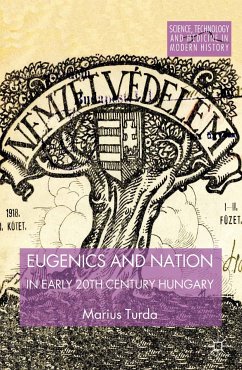Dieser Download kann aus rechtlichen Gründen nur mit Rechnungsadresse in A, B, BG, CY, CZ, D, DK, EW, E, FIN, F, GR, HR, H, IRL, I, LT, L, LR, M, NL, PL, P, R, S, SLO, SK ausgeliefert werden.
"Is definitely a milestone book, not only as an overview of the European discourse of eugenics, but for our understanding of eugenics as a fundamental part of European history in the twentieth century ... ." (Björn Michael Felder, Historische Zeitschrift)
"A stimulating challenge to think more precisely about the role of scientific research in the development of eugenic policies and about the place of eugenics in the broader picture of social politics.' (Nils Roll-Hansen, Metascience)
"Turda's book offers a very concise primer on the discourse of eugenics for scholars interested in the transnational character of eugenics in Europe in the turbulent years of 1870-1940 ... ." (Routledge ABES June 2011)









